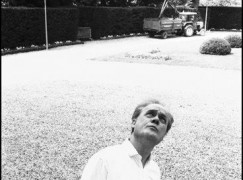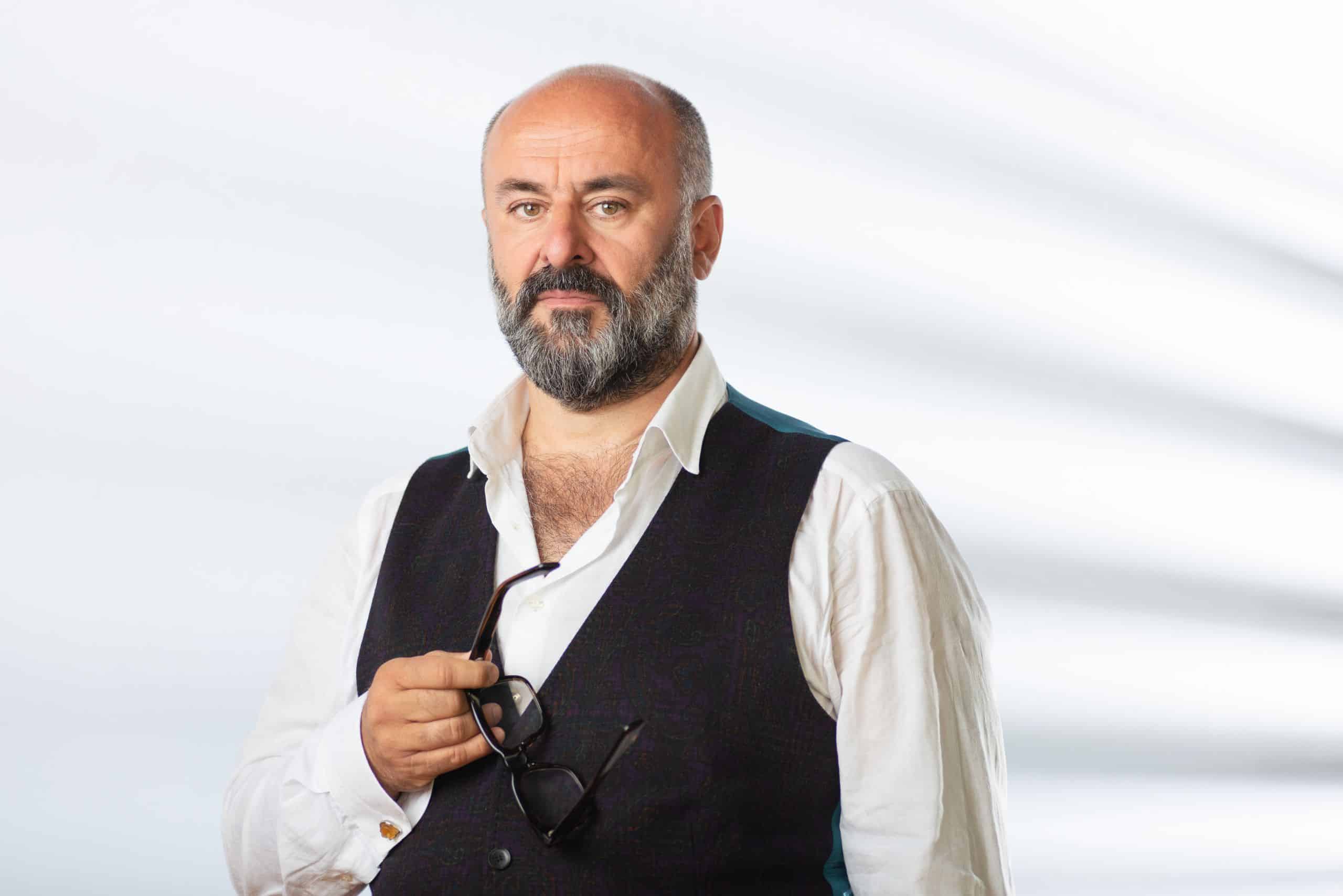Unreleased Charles Rosen
mainMikhail Kaykov has unearthed an extraordinary 1952 Charles Rosen broadcast.
Greatest US-born classical pianist?

Mikhail Kaykov has unearthed an extraordinary 1952 Charles Rosen broadcast.
Greatest US-born classical pianist?
The Syracuse Opera Company has filed for bankruptcy,…

A barely recognisable version of Puccini’s last opera…

The revered violinist Haim Taub, concertmaster of the…

Fans have uploaded a performance of Schubert’s four-hand…

Session expired
Please log in again. The login page will open in a new tab. After logging in you can close it and return to this page.
Arguably a toss up between him and Serkin.
A literal reading of repertoire not associated with this respected pianist and author. Huseyin Sermet, Gieseking, Ivo Pogorelic, Michelangeli offer what I want to hear in “Gaspard”, but I’m grateful to Mikhail Kaykov and Norman for the chance to hear this rare curiosity. Some strange things happen just before the 16-minute mark and on to the end. Likewise in the Chopin that follows.
Cortot recorded “Gaspard” before WWII, but it also was never issued, and I have never heard it.
Rosen’s name wouldn’t occur to me for a list of greatest American-born pianists.
.
/
A rare intelligence, certainly: ground-breaking recordings (eg Debussy Etudes, Carter, Stravinsky, Boulez), although I think I’d rather go for Paul Jacobs in this rep.
If you’ve never heard the Gaspard recording of Samson Francois – run, don’t walk!!
That Cortot recording (from 1939 I believe) was never approved, and no test-pressing is known to have survived. Back then, commercial studio recordings were made on wax, then a metal stamper was made, and shellac recordings were stamped out that way….
When an unissued recording survives, it is usually froma “test-pressing”. I known that the 1924 Ignaz Friedman Campanella originated from a metal stamper, but that happens extremely rarely indeed….
If a Cortot Gaspard would surface… it would probably be from one of his 1950’s performances….
I tried to listen to Ondine but gave up after a couple of very painful minutes. This man has no idea of the music, does not understand that the fast figure is a shimmering background against which the melody forms a grand arch, the phrasing of the melodic line has no breathing at all, no feeling for poetry, etc. etc – in short: very unmusical. A rationalistic mind who tries to render the notes as clearly as possible entirely ignoring the context. It is not the recording, it is the playing.
By way of comparison: a recent recording, which has everything that the wonderful music requires:
https://www.youtube.com/watch?v=fGUEZUmuBhA
Charles Rosen’s response could be: ‘— someone executing a favorite work will indeed tend to highlight the passages that give the performer the greatest pleasure, slowing down and emphasizing them. Yet in some cases these passages are better served by an interpretation that eschews ostentation.’
Rosen’s rationalistic mind is precisely his selling point. Take it or leave it.
Shaping the music according to its inner dynamics has nothing to do with titilating the performer’s pleasure, with its slowing down, emphasizing passages, giving them ostentation. Players who do away with the inner musical dynamics, confuse exaggerated narcissistic performance with a truly musical rendering, and use it as an excuse for a lack of musical understanding. Rosen’s mind is an analytic one, better suited to musicology than to performing. But also his analytic exercizes sometimes miss the point entirely.
Classical music is NOT a rationalistic art form. The very components that make the music live and breathe, cannot be notated, and are dependent upon the musical imagination of the performer, which is fed by a living tradition, of which Ravel was an important composer. In comparison with music, it is sound art which is rationalistic and hence Rosen’s support for it. R’s misconceptions of music appear clearly from the way he plays it – but also from the way he explains musical fragments of which he thinks that they predict modernism:
http://subterraneanreview.blogspot.com/2021/04/charles-rosen-lecture-on-modernism.html
John Borstlap’s harsh comments are hard to refute. His attachment is by one of the best younger pianists, Benjamin Grosvenor, who like Stephen Hough has named Benno Moiseiwitsch and Alfred Cortot as among his favorites.
Btron Janis belongs on the list with others named here. I second Paul Jacobs.
John Borstlap’s harsh but just comments are hard to refute. His attachment is played by Benjamin Grosvenor, one of the best younger pianists. Like Stephem Hough, he has named Benno Moiseiwitsch and Alfred Cortot as among his own favorites.
Byron Janis belongs on the list with others named, and I second Paul Jacobs.
kappel? fleisher?
Great pianist, but I found “The Classical Style” arcane, byzantine and obtuse.
The Classical Style is one of the three or four greatest books I have ever read, fiction or nonfiction. I can’t say I am surprised that you didn’t grasp it. What an illuminating window into the the mind that produces the political gibberish with which you favor us here!
‘The Classical Style’ is a great book showing great erudition and sharp analytic insight. Its writing style is a bit rambling however, and sketchy, but that does not diminish its achievement. Also his ‘Sonata Forms’ is a great book.
More than a bit of irony and some unintentional comedy in Sue “Sonata Form” criticizing Charles Rosen’s book “The Classical Style”!
That is because she was not included in the latest edition of the book.
Uncle Charles. How we all miss him.
“Greatest US-born classical pianist?” Hardly! Rosen was outclassed by such American-born pianists as William Kapell, Leon Fleisher, Leonard Shure, Rosalyn Tureck, and Van Cliburn.
Richard Goode
Murray Perahia
Oh please, above Van Cliburn and Leon Fleisher?
His technique is just not up there with the well-known international soloists.
Like many professors, his scholarship is better than his performance, and he concentrates on modern compositions, for which there is no real standard (or even expectation) of how those pieces should sound.
Painfully true.
Given the current climate is it really necessary to mention superlatives in front of nationalities?
Does it matter where Mr Rosen was born? How about the state or the city, or hospital? Had a marvelous pianist been born in Soviet Union but escaped to US in 1918, educated in US, could they be counted as best Soviet-born pianist?
Again, what is the significance beyond fussball-club statistics?
‘When in doubt, ask a tree’ is how the old saying goes.
Since you have asked the question, the answer is, not by the faintest stretch of the imagination . What about Katchen, Perahia, Cliburn , Wild, Fleisher, Kapell ?
Beautiful. This broadcast is well worth an advanced digital re-mastering.
That reminds me of my favourite book by Charles Rosen: ‘The Frontiers of Meaning: Three Informal Lectures on Music’. The essay on Beethoven (‘How to become immortal’) tells you everything you wanted to know about Beethoven but was afraid to ask… No, really not, but it is the most interesting writing about Beethoven that I know.
Beautiful performances. Of the Charles Rosen recordings I have, the ones more frequently played are Stravinsky and other moderns.
How did Rosen interact with an audience in the recital hall ? I was often taken as a child to hear classical musicians touring to Washington D.C. Looking back, my favorites –Arthur Rubinstein, Zino Francescatti, Yehudi Menuhin — were artists who conveyed joy in the music they played … and a desire that the audience shared that feeling.
I remember touring with guest civilian soloist Charles with the US 7th Army Symphony in ’54 when he played the Schumann and Beethoven 4th piano concertos in Munich, Salzburg, and Vienna. He was a superb musician. Later, when we lived in the same UWS neighborhood in Manhattan I used to run across him on the street. We would exchange pleasantries.
Gee, I don’t know Norman. Let me check with Gary Graffman, Garrick Ohlsson, Leon Fleischer, Van Cliburn, Murray Perahia, William Kappell, Jonathan Biss, Simone Dinnerstein and Andre Watts. I’ll get back to you.
You should have stopped after Kappell…
…John Browning…to continue the thread
And of course there are names such as Gottschalk — we can evaluate his compositions, and have to assume that he didn’t write them to make his own playing sound bad, but cannot really rank his playing or his musicianship because we cannot hear it.
I’ll mention a name not because I think he’s better than Kapell but because he was so good and now seems so forgotten: Malcolm Frager.
It’s a delightful recording, and I’m glad you enjoyed it. “Greatest” US pianist, well, all rankings are extremely difficult and subjective. I’d certainly include Joseph Villa, William Kapell, Jerome Lowenthal (my former teacher back when I was at Juilliard), and Andrew Tyson in that list…. and many others!
I was asked to review Rosen in recital at the Queen Elizabeth Hall once. From memory, his Mozart was without personality and even technically questionable. After that, what could one say apart from, “With regret, my conclusion is that Rosen should return to his other keyboard and keep writing books. They contribute infinitely more in terms of musical understanding than this recital’s leadenly-delivered finger exercises, all of which could have been mistaken for an offering from a below-average undergraduate student if one listened with ones eyes closed.”
Suggesting Rosen as the greatest US-born pianist (whatever that really would mean) is click-baiting on the part of Norman. And given that here we are arguing about it, I suppose we’d have to say it was a successful effort!
My favorite recording of Rosen (and one of my favorite recordings, period) is his boxed set of Bach’s Art of the Fugue (and Goldberg Variations, though it’s The Art of the Fugue that merits the most attention). And while I’m not remotely an audiophile in any sense, the CD reissue does sound appreciably worse than the original LP version – and in a way that impacted my enjoyment of the performance.
I’m reading one of his collections of essays now (“Critical Entertainments”), after having finished another of his collections just before that. He’s absolutely brilliant as a writer and analyst. I think Norman would have been on much firmer ground if he’d posed the question of whether Charles Rosen is the Greatest US-born Classical Music Essayist!
Dr. Dayokov, perhaps “Gaspard” was not the piece for Cortot even in 1939, when he was 62, tantalising as it is to imagine. I doubt he played it after the war.
He was still doing impressive things like Saint-Saens’s fourth concerto and valse-etude, and Chopin’s etudes, but had run afoul of Ravel by 1then so that Ravel sued him to prevent a two-hand arrangement of the left-hand concerto, and asked conductors not to engage him for it.
I saw Cortot play a big program of Schumann and Chopin without distress in Frankfurt in 1952, shortly after he made many records in Japan, but I was young, uncritical, and didn’t yet know some of the works he played including “Carnaval” and the Symphonic Etudes with the appendix variations.